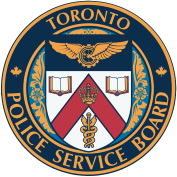
Process for Seeking Legislative Change
|
DATE APPROVED |
February 19, 2013 |
Minute No: P30/13 |
|
DATE(S) AMENDED |
March 2, 2023 |
Minute No: P2023-0302-2.0. |
|
DATE REVIEWED |
|
|
|
REPORTING REQUIREMENT |
|
|
|
LEGISLATION |
Police Services Act, R.S.O. 1990, c.P.15, as amended, s. 31(1)(c). |
|
|
DERIVATION |
Independent Civilian Review into Matters Relating to the G20 Summit, Recommendation No. 29 |
|
Policy considerations affect legislative choices and, together, policy and legislation determine the boundaries of police powers and ensure the adequacy and effectiveness of police services in Ontario.
As the entity that is responsible for the provision of adequate and effective policing under the Police Services Act, the Board is the body responsible for seeking legislative change. Legislative action, including action that can change the law enforcement powers available to police officers, affects the very framework in which police services are delivered in Toronto. It is the Board’s responsibility to maximize the delivery of adequate and effective policing within this framework and, where it believes the framework requires improvement in this regard, to seek those improvements.
Conversely, under s. 41(1)(a) of the Police Services Act, the Chief of Police is responsible for administering the police service and overseeing its operation, in accordance with the objectives, priorities and policies established by the Board. The Chief is responsible for implementing Board policy and applicable legislation, while the Board is most appropriately placed for requesting new legislation or seeking amendment to existing legislation. However, in seeking legislative change, it is important for the Board to work in consultation with the Chief of Police.
It is, therefore, the policy of the Toronto Police Services Board that:
- Any requests or recommendations for additions to, amendments of or any other changes to federal, provincial and municipal legislation will only be made by the Board and not by any individual member of the Service, including the Chief of Police;
- this prohibition does not apply if the Board has formally approved a request or recommendation for additions to, amendments of or any other changes to any federal, provincial and municipal legislation, and has explicitly asked the Chief to convey a request or recommendation on behalf of both the Board and Chief.
- Where the Chief of Police is of the opinion that the current legislative powers available to him or her are not sufficient or effective for the purposes of carrying out policing responsibilities, he or she will advise the Board, which will then consider whether to take further steps, including obtaining legal advice concerning the type of legislative change that would be required to address the Chief of Police’s concern and determining whether it wishes to make a request for legislative change to the relevant level of government; and,
- Such consideration by the Board will include consultation with the Chief of Police regarding the nature of the concern, the potential legislative change required, as well as any rationale and supporting information or evidence to support the effectiveness of the potential change.
G20-report, cross-jurisdictional, command, board administration